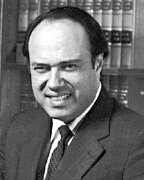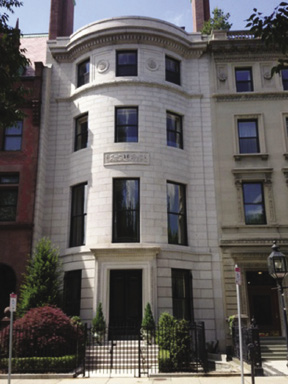According to the Appeals Court of Massachusetts in the recent case of Wodinsky v. Kettenbach (86 Mass. App. Ct. 825 (2015)), 303 Commonwealth Ave. in Boston is "unquestionably an historic and elegant property."
In the Wodinsky case, unit owners brought suit against the Condominium Board including owners of four of the five units who wanted to acquire all of the units and merge them in order to change the building into a single-family residence for themselves "for violation of the Civil Rights Act, unreasonable interference with use of the unit and condominium common areas, and intentional infliction of emotional distress, among other claims."
The Appeals Court held among other things that the evidence was sufficient that the Board conspired to force unit owners from their units.
The Wodinskys were elderly. Kettenbach was part of the Demoulas family. This was clearly a case of David v. Goliath. The Wodinskys owned only Unit 3.
The Appeals Court found that Chapter 93A did not apply as Kettenbach/Demoulas were not engaged in commercial conduct as their actions were primarily private in that they wanted to own the entire building as a single family home.
I do not agree with the appeals court as to Chapter 93A.
Also, the Appeals Court found that, based on the evidence, a jury could have found coercive, intimidating or threatening conduct against the Wodinskys.
The Appeals Court also found that there may have been sufficient evidence to support the jury's verdict that Kettenbach/Demoulas committed abuse of process by instituting the tort action against the Wodinskys.
The Appeals Court also found that there may have been sufficient evidence to support the jury's verdict that Kettenbach/Demoulas engaged in a civil conspiracy against the Wodinskys.
The Appeals Court also addressed common expenses and attorney's fees.
The real lesson of this case is that it is difficult if not impossible for an elderly person such as Wodinsky to prevail in any meaningful sense against extremely wealthy people such as Kettenbach/Demoulas.
The answer might be (1) to require "quick draw" arbitration by a provision to that effect in the condominium documents, and/or (2) to amend the Massachusetts Condominium Statute to create a level playing field between average folks such as the Wodinskys and extremely wealthy folks such as Kettenbach/Demoulas.
Saul Feldman, Esq. is a real estate attorney at Feldman Law Office, Boston, Mass.
Tags:
David v. Goliath, the case of the "historic and elegant (condominium) property"
May 28, 2015 - Spotlights










